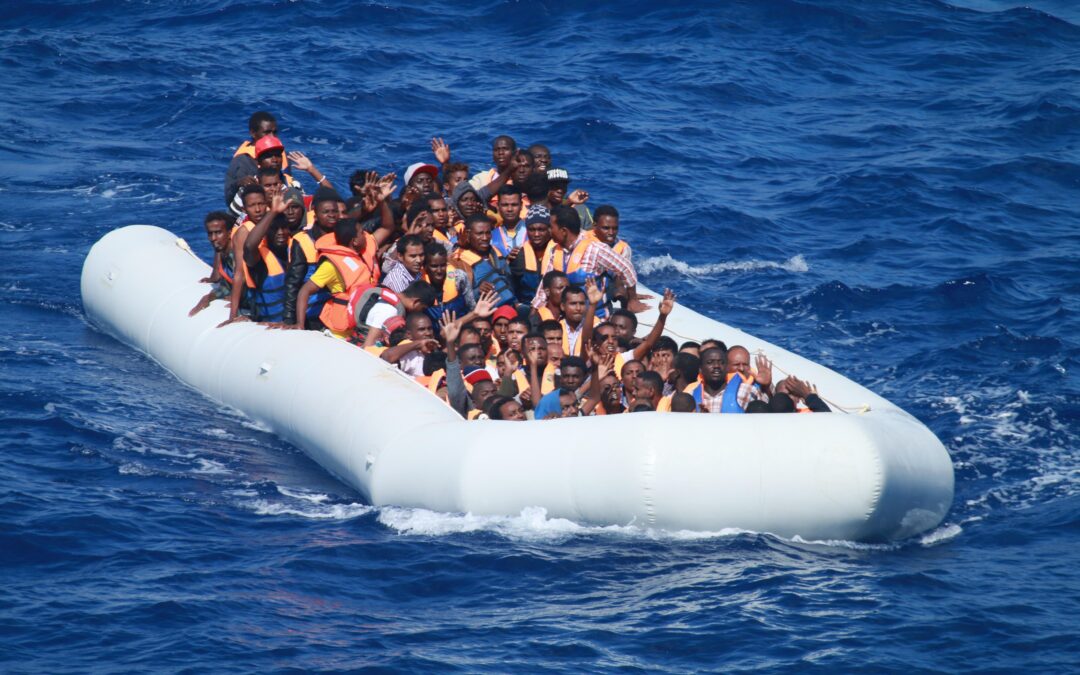Keep our news free from ads and paywalls by making a donation to support our work!

Notes from Poland is run by a small editorial team and is published by an independent, non-profit foundation that is funded through donations from our readers. We cannot do what we do without your support.
The Polish government has announced that Poland will be exempted from the element of the European Union’s migration pact requiring countries to receive migrants relocated from other member states.
Prime Minister Donald Tusk has celebrated the news as a success for his government. However, the opposition Law and Justice (PiS) party claim that credit should go to the recently elected PiS-aligned president, Karol Nawrocki.
Mówiłem, że nie będzie w Polsce relokacji migrantów i nie będzie! Załatwione. Że uszczelnimy barierę na granicy z Białorusią – i jest to dziś najlepiej strzeżona granica w Europie. Że zaostrzymy przepisy wizowe i azylowe – i Polska stała się wzorem dla innych. Robimy, nie gadamy!
— Donald Tusk (@donaldtusk) October 11, 2025
The EU Pact on Migration and Asylum was adopted last year – despite opposition from Poland – and will go into force over the following two years. One element is a so-called “solidarity framework” that requires other member states to help those receiving large numbers of migrants.
They can do so by taking in a share of those migrants or by paying €20,000 for each they do not take. Poland has argued that it would be unfair if it were expected to do this because it welcomed millions of Ukrainian refugees after Russia’s full-scale invasion in 2022, and still houses almost a million of them.
On Saturday morning, Polish broadcaster RMF reported unofficially that the European Commission has agreed to exempt Poland from the solidarity mechanism due to its support for Ukrainian refugees. Another media outlet, Polsat News, reported the same based on its sources.
Poland would be recognised as a country “under migratory pressure” and therefore eligible for support, rather than being expected to help others. Two years ago, that is precisely what the then European Commissioner for Home Affairs, Ylva Johansson, said was likely to happen.
RMF reported that the European Commission would next week announce which countries it wanted to define as being under migratory pressure, with that list then needing approval from the Council of the European Union, which is made up of government ministers from each member state.
However, the Polish Press Agency (PAP) reported based on its own sources that the commission has not yet reached a final decision on how to classify Poland.
Late on Saturday morning, Polish government spokesman Adam Szłapka appeared to confirm RMF’s report, writing on social media: “The tough and uncompromising stance of Donald Tusk’s government on the migration pact is yielding results”.
In the afternoon, Tusk himself wrote: “I said that there would be no relocation of migrants in Poland, and there won’t be! It’s done.” Earlier this year, Tusk had warned the EU that Poland would not comply with the migration pact if it involved receiving relocated migrants.
Poland "will not implement" the EU migration pact if it involves the "forced acceptance of migrants", says @donaldtusk.
That would "waste the efforts of our border officers who are risking their lives" to make “Poland one of the safest places in Europe" https://t.co/ZUTLcmRkHA
— Notes from Poland 🇵🇱 (@notesfrompoland) February 4, 2025
Figures from PiS – which ruled Poland from 2015 to 2023 and is now the main opposition party – claimed that President Nawrocki, who was elected this year with support from PiS, is to thank for the European Commission’s reported decision.
On Thursday this week, Nawrocki’s office sent a letter to European Commission President Ursula von der Leyen informing her that “Poland will not agree to any actions by European institutions aimed at relocating illegal migrants to Poland”.
“Look what happened,” said former PiS Prime Minister Mateusz Morawiecki today, quoted by news website Interia. “A few days ago, President Nawrocki sent a tough letter to von der Leyen… A few days pass, and the EU is cracking. It’s cracking before Karol! Thank you, Mr President.”
Another former PiS prime minister, Beata Szydło, noted that today’s news came just as PiS was about to hold a mass anti-immigration protest in Warsaw. “They [the EU] got scared by the anger of Poles,” she wrote.
Jest działanie @NawrockiKn, są i efekty! Mamy szansę zatrzymać pakt migracyjny i to mimo całkowitej indolencji rządu w tej sprawie!
Widzimy się o 14:00 na placu Zamkowym w Warszawie! pic.twitter.com/Iav8P4Vmis
— Mateusz Kurzejewski (@MKurzejewski) October 11, 2025
On Friday, commission spokesman Markus Lammert confirmed that they had received Nawrocki’s letter. “Poland is showing extraordinary solidarity with Ukraine and has accepted a large number of Ukrainian refugees for over three years,” he said. “This is a huge effort, which we fully take into account.”
Lammert also noted that Poland faces a situation on its border with Belarus, “where migration is being used as a weapon”. Since 2021, Belarus has been encouraging and assisting tens of thousands of migrants to irregularly cross into the EU over its borders with Poland, Lithuania and Latvia.
“The Commission fully supports Poland, both politically and through additional financial support for border protection,” he declared, quoted by Business Insider Polska.
EU chief @vonderleyen has thanked Poland for defending Europe from “cynical hybrid attacks” during a visit with PM @donaldtusk to the border with Belarus.
She emphasised the “urgency” of protecting the EU’s frontier from the “predator” Vladimir Putin https://t.co/O9bhmLha44
— Notes from Poland 🇵🇱 (@notesfrompoland) August 31, 2025

Notes from Poland is run by a small editorial team and published by an independent, non-profit foundation that is funded through donations from our readers. We cannot do what we do without your support.
Main image credit: US Naval Forces Europe-Africa (under public domain)

Daniel Tilles is editor-in-chief of Notes from Poland. He has written on Polish affairs for a wide range of publications, including Foreign Policy, POLITICO Europe, EUobserver and Dziennik Gazeta Prawna.



















